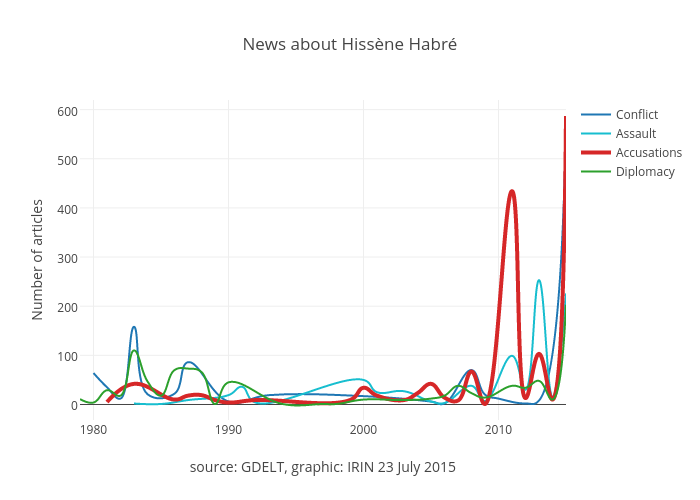The US-led bombing campaign against the so-called Islamic State (ISIS) has killed hundreds of civilians in Iraq and Syria, despite official recognition of only two deaths, a new report has alleged.
Nepal Earthquake - three months on
Aid groups and major news agencies are marking the three-month anniversary of the Nepal earthquake with a flurry of retrospectives and reminders that the "emergency is not over".
As international emergency funding remains relatively weak, IRIN teamed up with GDELT to try and estimate how much international attention has moved on. The answer is not surprising, but striking both in its speed and the uniformity between media around the world, with the exception of course of Nepal and its neighbours. (More detailed analysis is available on the GDELT blog). By thirty days after the earthquake, media coverage had faded away almost to pre-earthquake levels, with the exception of a notable blip when a new earthquake and a missing US helicopter briefly reignited the level of attention. Without that, the drop-off in attention would be in days, not weeks.
We also looked, as we did immediately after the earthquake, at which media mentioned Mount Everest in their coverage - with the suggestion that the landmark and its foreign climbers might be getting disproportionate coverage compared to the local population.
Now, GDELT has provided an analysis of over 300,000 news articles mentioning Nepal to look at this Everest factor, as well as the fatigue described above.
Read more at the GDELT blog: http://blog.gdeltproject.org
MAP: Which countries mention Everest the most in their coverage of Nepal?
In the spotlight
In a new film, IRIN profiles a key witness in the trail of Hissène Habré.
The former president has been catapulted into the news recently, as a review of the GDELT database shows. GDELT, which harvests thousands of reports from news outlets daily, automatically classifies them according to the CAMEO scheme (see here for details). During his time in power, Habré was most associated with reporting about conflict, but now his name is linked to issues of justice, assault and torture.
Clement Abaifouta, 55, has been waiting nearly 25 years to put one question to Hissène Habré, the former president of Chad: “Why did you arrest me?”








